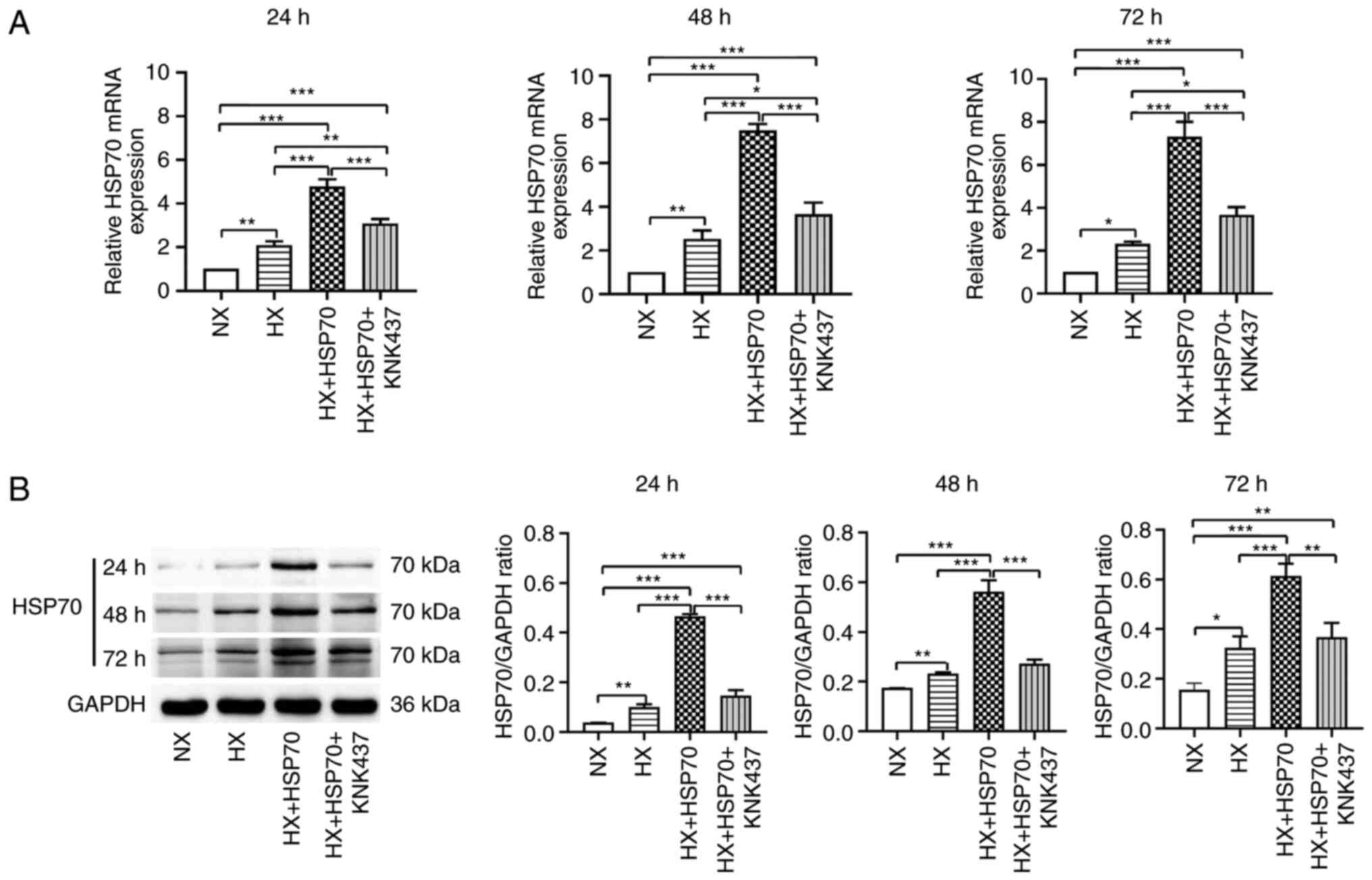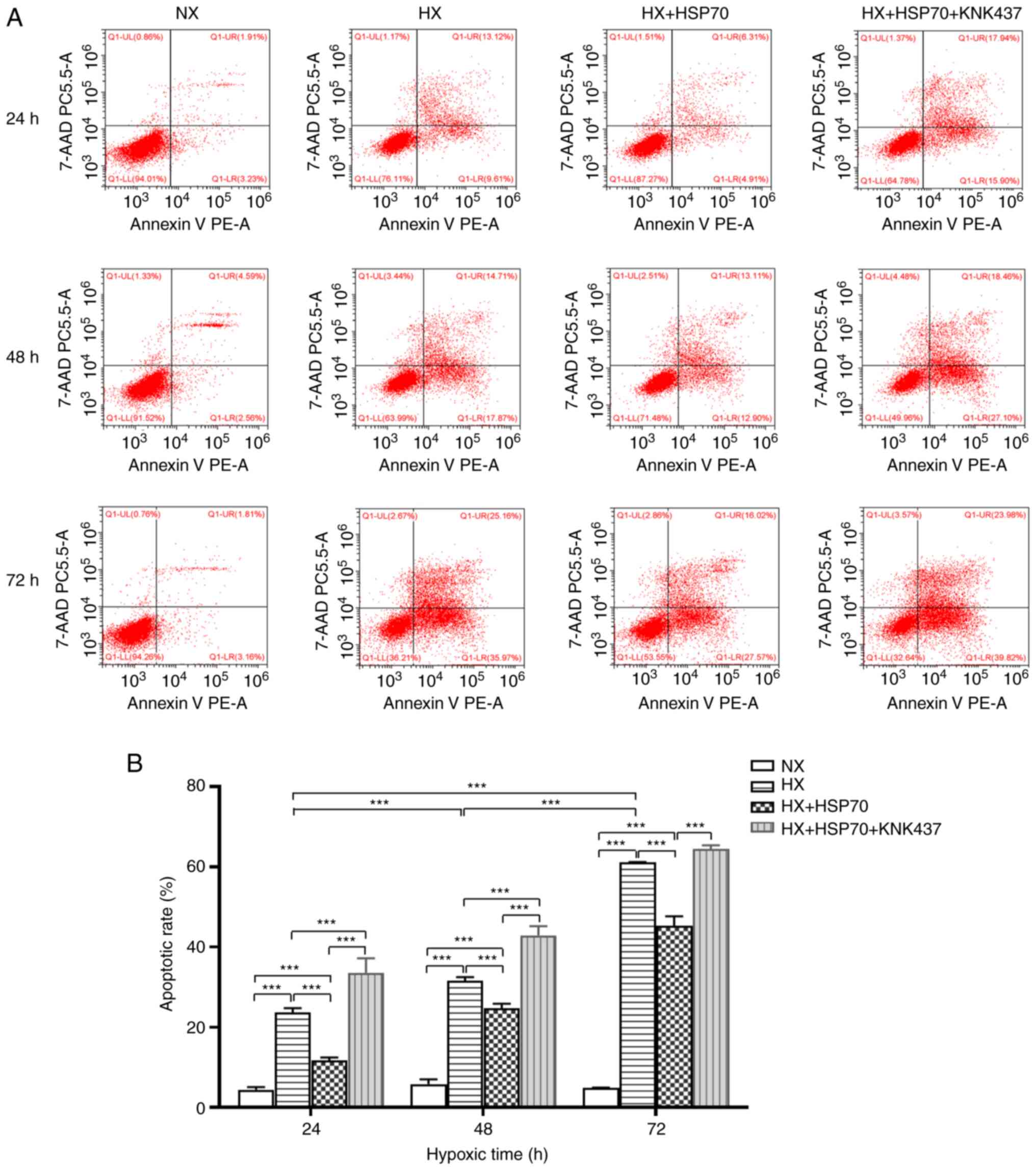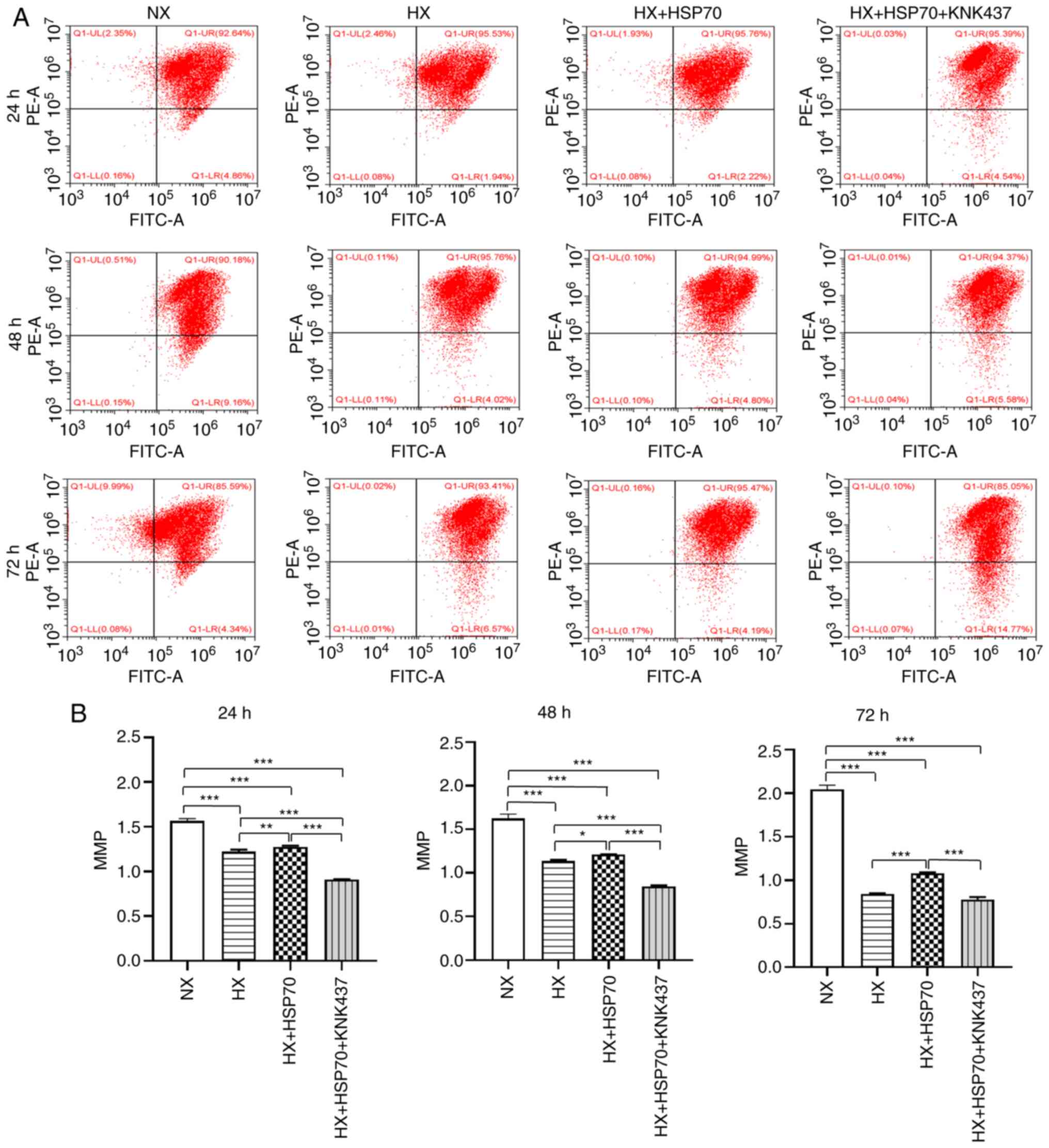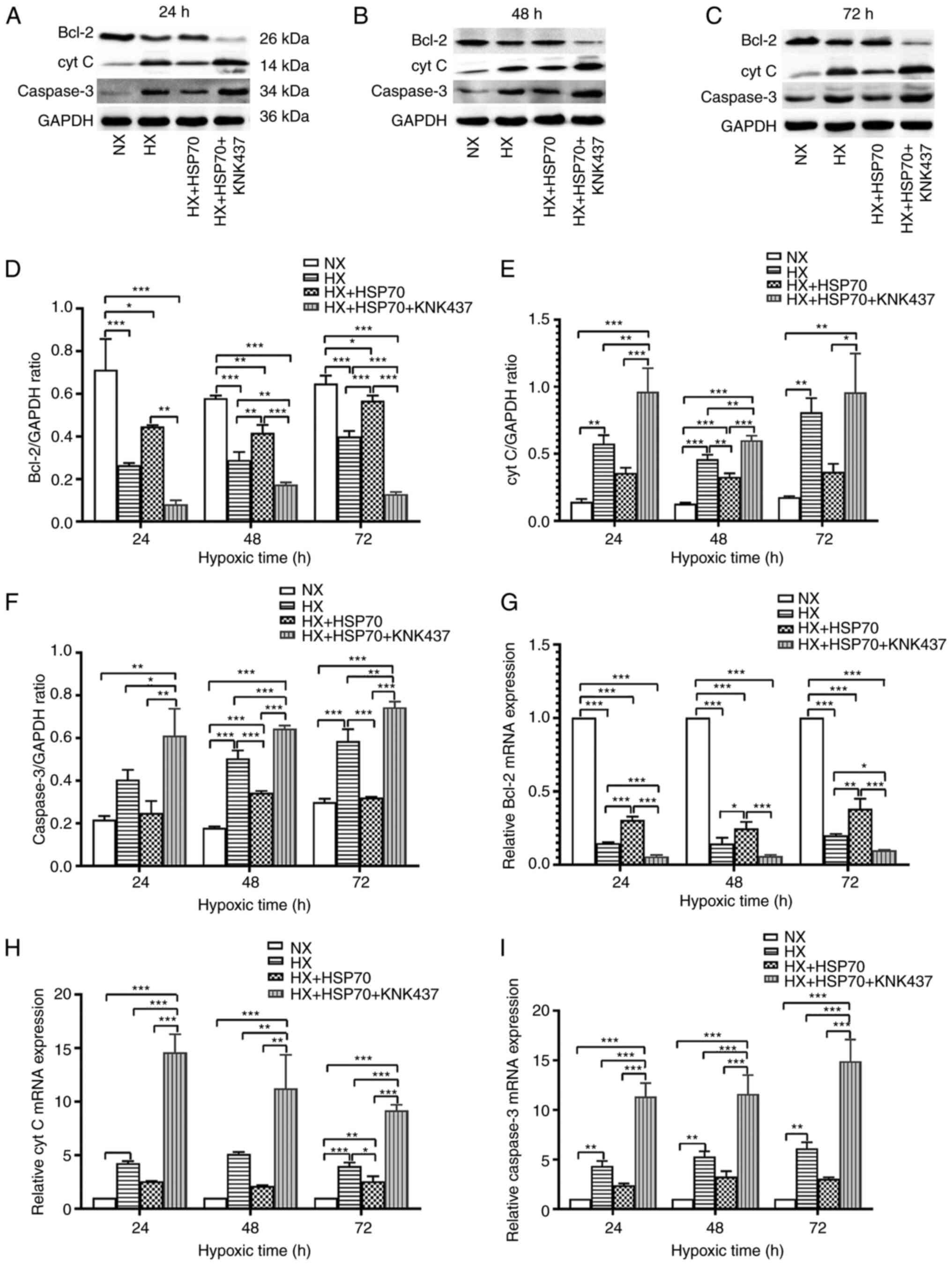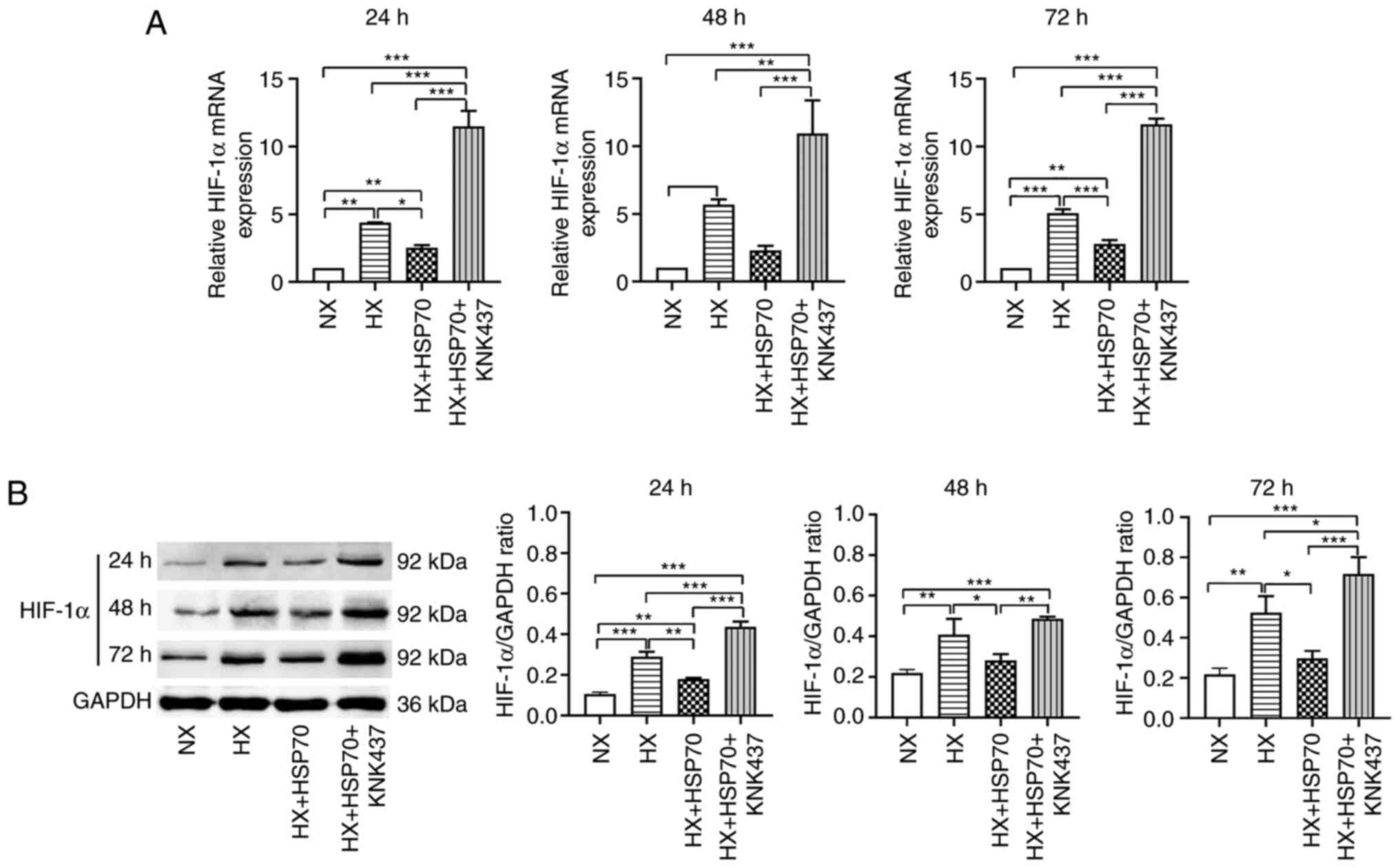|
1
|
Walsh-Sukys MC, Tyson JE, Wright LL, Bauer
CR, Korones SB, Stevenson DK, Verter J, Stoll BJ, Lemons JA, Papile
LA, et al: Persistent pulmonary hypertension of the newborn in the
era before nitric oxide: Practice variation and outcomes.
Pediatrics. 105((1 Pt 1)): 14–20. 2000. View Article : Google Scholar : PubMed/NCBI
|
|
2
|
Distefano G and Sciacca P: Molecular
physiopathogenetic mechanisms and development of new potential
therapeutic strategies in persistent pulmonary hypertension of the
newborn. Ital J Pediatr. 41:62015. View Article : Google Scholar : PubMed/NCBI
|
|
3
|
Du Y, Fu J, Yao L, Qiao L, Liu N, Xing Y
and Xue X: Altered expression of PPAR-ү and TRPC in neonatal rats
with persistent pulmonary hypertension. Mol Med Rep. 16:1117–1124.
2017. View Article : Google Scholar : PubMed/NCBI
|
|
4
|
Dabral S, Tian X, Kojonazarov B, Savai R,
Ghofrani HA, Weissmann N, Florio M, Sun J, Jonigk D, Maegel L, et
al: Notch1 signalling regulates endothelial proliferation and
apoptosis in pulmonary arterial hypertension. Eur Respir J.
48:1137–1149. 2016. View Article : Google Scholar : PubMed/NCBI
|
|
5
|
Hudalla H, Michael Z, Christodoulou N,
Willis GR, Fernandez-Gonzalez A, Filatava EJ, Dieffenbach P,
Fredenburgh LE, Stearman RS, Geraci MW, et al: Carbonic anhydrase
inhibition ameliorates inflammation and experimental pulmonary
hypertension. Am J Respir Cell Mol Biol. 61:512–524. 2019.
View Article : Google Scholar : PubMed/NCBI
|
|
6
|
Majka S, Hagen M, Blackwell T, Harral J,
Johnson JA, Gendron R, Paradis H, Crona D, Loyd JE, Nozik-Grayck E,
et al: Physiologic and molecular consequences of endothelial Bmpr2
mutation. Respir Res. 12:842011. View Article : Google Scholar : PubMed/NCBI
|
|
7
|
Sakao S, Taraseviciene-Stewart L, Lee JD,
Wood K, Cool CD and Voelkel NF: Initial apoptosis is followed by
increased proliferation of apoptosis-resistant endothelial cells.
FASEB J. 19:1178–1180. 2005. View Article : Google Scholar : PubMed/NCBI
|
|
8
|
Rhodes CJ, Im H, Cao A, Hennigs JK, Wang
L, Sa S, Chen PI, Nickel NP, Miyagawa K, Hopper RK, et al: RNA
sequencing analysis detection of a novel pathway of endothelial
dysfunction in pulmonary arterial hypertension. Am J Respir Crit
Care Med. 192:356–366. 2015. View Article : Google Scholar : PubMed/NCBI
|
|
9
|
Singh N, Singh H, Jagavelu K, Wahajuddin M
and Hanif K: Fatty acid synthase modulates proliferation, metabolic
functions and angiogenesis in hypoxic pulmonary artery endothelial
cells. Eur J Pharmacol. 815:462–469. 2017. View Article : Google Scholar : PubMed/NCBI
|
|
10
|
Guerard P, Rakotoniaina Z, Goirand F,
Rochette L, Dumas M, Lirussi F and Bardou M: The HMG-CoA reductase
inhibitor, pravastatin, prevents the development of
monocrotaline-induced pulmonary hypertension in the rat through
reduction of endothelial cell apoptosis and overexpression of eNOS.
Naunyn Schmiedebergs Arch Pharmacol. 373:401–414. 2006. View Article : Google Scholar : PubMed/NCBI
|
|
11
|
Yeager ME, Halley GR, Golpon HA, Voelkel
NF and Tuder RM: Microsatellite instability of endothelial cell
growth and apoptosis genes within plexiform lesions in primary
pulmonary hypertension. Circ Res. 88:E2–E11. 2001. View Article : Google Scholar : PubMed/NCBI
|
|
12
|
Masri FA, Xu W, Comhair SA, Asosingh K,
Koo M, Vasanji A, Drazba J, Anand-Apte B and Erzurum SC:
Hyperproliferative apoptosis-resistant endothelial cells in
idiopathic pulmonary arterial hypertension. Am J Physiol Lung Cell
Mol Physiol. 293:L548–L554. 2007. View Article : Google Scholar : PubMed/NCBI
|
|
13
|
Schultz A, Olorundami OA, Teng RJ,
Jarzembowski J, Shi ZZ, Kumar SN, Pritchard K Jr, Konduri GG and
Afolayan AJ: Decreased OLA1 (Obg-Like ATPase-1) expression drives
ubiquitin-proteasome pathways to downregulate mitochondrial SOD2
(Superoxide Dismutase) in persistent pulmonary hypertension of the
newborn. Hypertension. 74:957–966. 2019. View Article : Google Scholar : PubMed/NCBI
|
|
14
|
Kondrikov D, Fulton D, Dong Z and Su Y:
Heat shock protein 70 prevents hyperoxia-induced disruption of lung
endothelial barrier via caspase-dependent and AIF-dependent
pathways. PLos One. 10:e01293432015. View Article : Google Scholar : PubMed/NCBI
|
|
15
|
Li X, Kanegasaki S, Jin F, Deng Y, Kim JR,
Chang HW and Tsuchiya T: Simultaneous induction of HSP70
expression, and degranulation, in IgE/Ag-stimulated or
extracellular HSP70-stimulated mast cells. Allergy. 73:361–368.
2018. View Article : Google Scholar : PubMed/NCBI
|
|
16
|
Aghdassi A, Phillips P, Dudeja V,
Dhaulakhandi D, Sharif R, Dawra R, Lerch MM and Saluja A: Heat
shock protein 70 increases tumorigenicity and inhibits apoptosis in
pancreatic adenocarcinoma. Cancer Res. 67:616–625. 2007. View Article : Google Scholar : PubMed/NCBI
|
|
17
|
Kumar S, Stokes J 3rd, Singh UP, Scissum
Gunn K, Acharya A, Manne U and Mishra M: Targeting Hsp70: A
possible therapy for cancer. Cancer Lett. 374:156–166. 2016.
View Article : Google Scholar : PubMed/NCBI
|
|
18
|
van Noort JM, Bugiani M and Amor S: Heat
shock proteins: Old and novel roles in neurodegenerative diseases
in the central nervous system. CNS Neurol Disord Drug Targets.
16:244–256. 2017. View Article : Google Scholar : PubMed/NCBI
|
|
19
|
Garrido C, Brunet M, Didelot C, Zermati Y,
Schmitt E and Kroemer G: Heat shock proteins 27 and 70:
Anti-apoptotic proteins with tumorigenic properties. Cell Cycle.
5:2592–2601. 2006. View Article : Google Scholar : PubMed/NCBI
|
|
20
|
Ciocca DR and Calderwood SK: Heat shock
proteins in cancer: Diagnostic, prognostic, predictive, and
treatment implications. Cell Stress Chaperones. 10:86–103. 2005.
View Article : Google Scholar : PubMed/NCBI
|
|
21
|
Ranek MJ, Stachowski MJ, Kirk JA and
Willis MS: The role of heat shock proteins and co-chaperones in
heart failure. Philos Trans R Soc Lond B Biol Sci.
373:201605302018. View Article : Google Scholar : PubMed/NCBI
|
|
22
|
Li X, Yu Y, Gorshkov B, Haigh S, Bordan Z,
Weintraub D, Rudic RD, Chakraborty T, Barman SA, Verin AD, et al:
Hsp70 suppresses mitochondrial reactive oxygen species and
preserves pulmonary microvascular barrier integrity following
exposure to bacterial toxins. Front Immunol. 9:13092018. View Article : Google Scholar : PubMed/NCBI
|
|
23
|
Semenza GL: The genomics and genetics of
oxygen homeostasis. Annu Rev Genomics Hum Genet. 21:183–204. 2020.
View Article : Google Scholar : PubMed/NCBI
|
|
24
|
Wang L, Zhou Y, Li M and Zhu Y: Expression
of hypoxia-inducible factor-1α, endothelin-1 and adrenomedullin in
newborn rats with hypoxia-induced pulmonary hypertension. Exp Ther
Med. 8:335–339. 2014. View Article : Google Scholar : PubMed/NCBI
|
|
25
|
Veith C, Schermuly RT, Brandes RP and
Weissmann N: Molecular mechanisms of hypoxia-inducible
factor-induced pulmonary arterial smooth muscle cell alterations in
pulmonary hypertension. J Physiol. 594:1167–1177. 2016. View Article : Google Scholar : PubMed/NCBI
|
|
26
|
Chen S and Sang N: Hypoxia-inducible
factor-1: A critical player in the survival strategy of stressed
cells. J Cell Biochem. 117:267–278. 2016. View Article : Google Scholar : PubMed/NCBI
|
|
27
|
Zhao L, Ma R, Zhang L, Yuan X, Wu J, He L,
Liu G and Du R: Inhibition of HIF-1a-mediated TLR4 activation
decreases apoptosis and promotes angiogenesis of placental
microvascular endothelial cells during severe pre-eclampsia
pathogenesis. Placenta. 83:8–16. 2019. View Article : Google Scholar : PubMed/NCBI
|
|
28
|
Xie RY, Fang XL, Zheng XB, Lv WZ, Li YJ,
Ibrahim Rage H, He QL, Zhu WP and Cui TX: Salidroside and FG-4592
ameliorate high glucose-induced glomerular endothelial cells injury
via HIF upregulation. Biomed Pharmacother. 118:1091752019.
View Article : Google Scholar : PubMed/NCBI
|
|
29
|
Leong KH, Zhou LL, Lin QM, Wang P, Yao L
and Huang ZJ: Therapeutic effects of various methods of MSC
transplantation on cerebral resuscitation following cardiac arrest
in rats. Mol Med Rep. 13:3043–3051. 2016. View Article : Google Scholar : PubMed/NCBI
|
|
30
|
Liu M, Liu Q, Pei Y, Gong M, Cui X, Pan J,
Zhang Y, Liu Y, Liu Y, Yuan X, et al: Aqp-1 gene knockout
attenuates hypoxic pulmonary hypertension of mice. Arterioscler
Thromb Vasc Biol. 39:48–62. 2019. View Article : Google Scholar : PubMed/NCBI
|
|
31
|
Yang YD, Li MM, Xu G, Zhang EL, Chen J,
Sun B, Chen DW and Gao YQ: Targeting mitochondria-associated
membranes as a potential therapy against endothelial injury induced
by hypoxia. J Cell Biochem. 120:18967–18978. 2019. View Article : Google Scholar : PubMed/NCBI
|
|
32
|
Koishi M, Yokota S, Mae T, Nishimura Y,
Kanamori S, Horii N, Shibuya K, Sasai K and Hiraoka M: The effects
of KNK437, a novel inhibitor of heat shock protein synthesis, on
the acquisition of thermotolerance in a murine transplantable tumor
in vivo. Clin Cancer Res. 7:215–219. 2001.PubMed/NCBI
|
|
33
|
Shiota M, Kusakabe H, Izumi Y, Hikita Y,
Nakao T, Funae Y, Miura K and Iwao H: Heat shock cognate protein 70
is essential for Akt signaling in endothelial function.
Arterioscler Thromb Vasc Biol. 30:491–497. 2010. View Article : Google Scholar : PubMed/NCBI
|
|
34
|
Bozaykut P, Sozen E, Kaga E, Ece A,
Ozaltin E, Bergquist J, Kartal Ozer N and Karademir Yilmaz B: HSP70
inhibition leads to the activation of proteasomal system under mild
hyperthermia conditions in young and senescent fibroblasts. Oxid
Med Cell Longev. 2020:93695242020. View Article : Google Scholar : PubMed/NCBI
|
|
35
|
Chung JW, Piao ZH, Yoon SR, Kim MS, Jeong
M, Lee SH, Min JK, Kim JW, Cho YH, Kim JC, et al: Pseudomonas
aeruginosa eliminates natural killer cells via phagocytosis-induced
apoptosis. PLoS Pathog. 5:e10005612009. View Article : Google Scholar : PubMed/NCBI
|
|
36
|
Zhang H, Liu Y, Wang L, Li Z, Zhang H, Wu
J, Rahman N, Guo Y, Li D, Li N, et al: Differential effects of
estrogen/androgen on the prevention of nonalcoholic fatty liver
disease in the male rat. J Lipid Res. 54:345–357. 2013. View Article : Google Scholar : PubMed/NCBI
|
|
37
|
Livak KJ and Schmittgen TD: Analysis of
relative gene expression data using real-time quantitative PCR and
the 2(-Delta Delta C(T)) method. Methods. 25:402–408. 2001.
View Article : Google Scholar : PubMed/NCBI
|
|
38
|
Wu YL, Li ZL, Zhang XB and Liu H:
Yinchenhao decoction attenuates obstructive jaundice-induced liver
injury and hepatocyte apoptosis by suppressing protein kinase
RNA-like endoplasmic reticulum kinase-induced pathway. World J
Gastroenterol. 25:6205–6221. 2019. View Article : Google Scholar : PubMed/NCBI
|
|
39
|
Du ZD, Wei W, Yu S, Song QL, Liu K and
Gong SS: NADPH oxidase 2-mediated insult in the auditory cortex of
zucker diabetic fatty rats. Neural Plast. 2019:35916052019.
View Article : Google Scholar : PubMed/NCBI
|
|
40
|
Sakao S, Tatsumi K and Voelkel NF:
Endothelial cells and pulmonary arterial hypertension: Apoptosis,
proliferation, interaction and transdifferentiation. Respir Res.
10:952009. View Article : Google Scholar : PubMed/NCBI
|
|
41
|
Teichert-Kuliszewska K, Kutryk MJ,
Kuliszewski MA, Karoubi G, Courtman DW, Zucco L, Granton J and
Stewart DJ: Bone morphogenetic protein receptor-2 signaling
promotes pulmonary arterial endothelial cell survival: Implications
for loss-of-function mutations in the pathogenesis of pulmonary
hypertension. Circ Res. 98:209–217. 2006. View Article : Google Scholar : PubMed/NCBI
|
|
42
|
Pullamsetti SS, Savai R, Seeger W and
Goncharova EA: Translational advances in the field of pulmonary
hypertension. From cancer biology to new pulmonary arterial
hypertension therapeutics. Targeting cell growth and proliferation
signaling hubs. Am J Respir Crit Care Med. 195:425–437. 2017.
View Article : Google Scholar : PubMed/NCBI
|
|
43
|
Marshall JD, Bazan I, Zhang Y, Fares WH
and Lee PJ: Mitochondrial dysfunction and pulmonary hypertension:
Cause, effect, or both. Am J Physiol Lung Cell Mol Physiol.
314:L782–L796. 2018. View Article : Google Scholar : PubMed/NCBI
|
|
44
|
Wang L and Li MX: Roles of heat shock
protein 70 toward hypoxia-inducible factor 1α (HIF-1α) blockade in
newborn rats with hypoxia-induced pulmonary hypertension. Int J
Clin Exp Med. 11:13520–13527. 2018.
|
|
45
|
Pena-Blanco A and Garcia-Saez AJ: Bax, Bak
and beyond-mitochondrial performance in apoptosis. FEBS J.
285:416–431. 2018. View Article : Google Scholar : PubMed/NCBI
|
|
46
|
Hoter A and Naim HY: Heat shock proteins
and ovarian cancer: Important roles and therapeutic opportunities.
Cancers (Basel). 11:13892019. View Article : Google Scholar : PubMed/NCBI
|
|
47
|
Dabral S, Muecke C, Valasarajan C,
Schmoranzer M, Wietelmann A, Semenza GL, Meister M, Muley T,
Seeger-Nukpezah T, Samakovlis C, et al: A RASSF1A-HIF1α loop drives
Warburg effect in cancer and pulmonary hypertension. Nat Commun.
10:21302019. View Article : Google Scholar : PubMed/NCBI
|
|
48
|
Devraj G, Beerlage C, Brune B and Kempf
VA: Hypoxia and HIF-1 activation in bacterial infections. Microbes
Infect. 19:144–156. 2017. View Article : Google Scholar : PubMed/NCBI
|
|
49
|
Ham PB 3rd and Raju R: Mitochondrial
function in hypoxic ischemic injury and influence of aging. Prog
Neurobiol. 157:92–116. 2017. View Article : Google Scholar : PubMed/NCBI
|
|
50
|
Mylonis I, Kourti M, Samiotaki M,
Panayotou G and Simos G: Mortalin-mediated and ERK-controlled
targeting of HIF-1α to mitochondria confers resistance to apoptosis
under hypoxia. J Cell Sci. 130:466–479. 2017.PubMed/NCBI
|
|
51
|
Zhou L, Cha G, Chen L, Yang C, Xu D and Ge
M: HIF1α/PD-L1 axis mediates hypoxia-induced cell apoptosis and
tumor progression in follicular thyroid carcinoma. Onco Targets
Ther. 12:6461–6470. 2019. View Article : Google Scholar : PubMed/NCBI
|
|
52
|
Pu J, Zhu S, Zhou D, Zhao L, Yin M, Wang Z
and Hong J: Propofol alleviates apoptosis induced by chronic high
glucose exposure via regulation of HIF-1α in H9c2 cells. Oxid Med
Cell Longev. 2019:48240352019. View Article : Google Scholar : PubMed/NCBI
|
|
53
|
Hollands C: The animals (Scientific
Procedures) ACT 1986. Lancet. 2:32–33. 1986. View Article : Google Scholar : PubMed/NCBI
|
|
54
|
European Parliament: Directive 2010/63/EU
of the European Parliament and of the Council of 22 September 2010
on the protection of animals used for scientific purposes. Official
J Eur Union. 276:33–79. 2010.
|
|
55
|
National Research Council (US) Committee
for the Update of the Guide for the Care and Use of Laboratory
Animals, . Guide for the Care and Use of Laboratory Animals. 8th
edition. National Academies Press; Washington, DC: 2011
|
|
56
|
McGrath JC, Drummond GB, McLachlan EM,
Kilkenny C and Wainwright CL: Guidelines for reporting experiments
involving animals: The ARRIVE guidelines. Br J Pharmacol.
160:1573–1576. 2010. View Article : Google Scholar : PubMed/NCBI
|
|
57
|
American Veterinary Medical Association
(AVMA), . AVMA Guidelines for the Euthanasia of Animals: 2013
Edition. AVMA; Schaumburg, IL: pp. 67–73. 2013
|
















